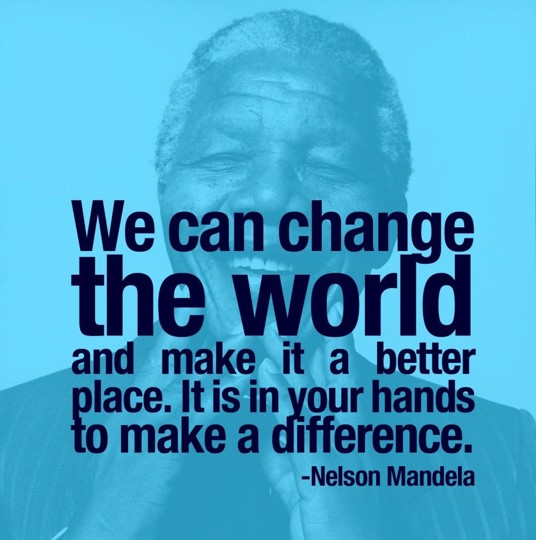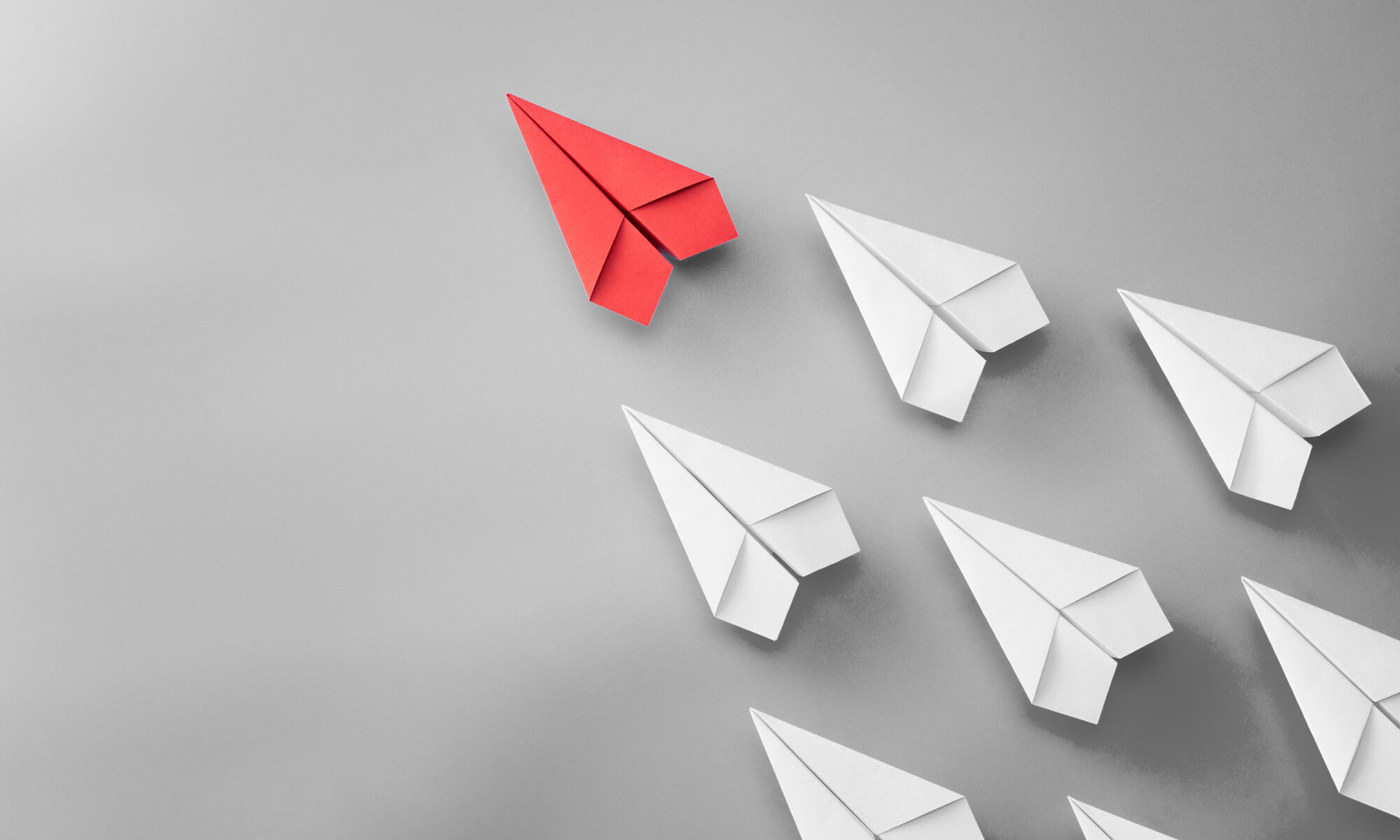
EDUCATION IS THE KEY
The idea of changing the world can be daunting. With so many problems to tackle, where do you begin? The list of global challenges is long and includes the need to eradicate extreme poverty, improve health outcomes, foster world peace and build a sustainable planet.
Believe it or not, education can assist in solving these issues and more. Education broadens the mind and helps us see the world afresh, thereby enabling us to make more balanced and insightful judgments. By applying these judgments to societal problems, we can advance the cause of humanity.
You certainly don’t need to wave a placard or chain yourself to a tree to make a difference. To quote Nelson Mandela: “Education is the most powerful weapon which you can use to change the world”. It provides us with the knowledge to critically examine our response to all life situations.
We all need to take educated action in a range of areas if we are to genuinely improve life on this tiny planet which we call home. This belief accords with the oft-quoted advice of English sociologist and philosopher, Herbert Spencer: “The great aim of education is not knowledge, but action”.
There is a vast difference between knowing something and acting on it. Understanding alone does not solve problems which is why awareness must be backed up with specific measures. In the words of Dale Carnegie: “Knowledge isn’t power until it is applied”.
Periodically, we are exposed to awareness campaigns which are designed to mobilise us to take action on a particular cause or issue. The hope is that once we know that a problem exists, (which is the purpose of this post!), we will be motivated to behave in a way that mitigates the issue.
Citizens of all nations are surrounded by problems, many of which are not contained to national borders. Still, it’s understandable to see ourselves as inhabitants of a community or a country. Yet, we are also citizens of the world and must learn to broaden our focus to effectively tackle cross-border issues.
All of us need to act like global citizens as we are all part of one global village. But our knowledge of supranational issues is often superficial as many of us lack global competency. Even so, we cannot continue to see the world through a narrow, self-absorbed national lens.
The aid and development organisation, Oxfam, defines a global citizen as “… someone who is aware of and understands the wider world – and their place in it. They take an active role in their community and work with others to make our planet more peaceful, sustainable and fairer”.
We live in an interconnected world where our local actions can have global implications. Small acts add up – they initially drive change in a city, then a state, followed by a nation and ultimately the world. This is how people power shapes our planet and it can take many forms.
We can all become agents of positive change by improving our decision-making capabilities. To facilitate this, we must understand the cause-and-effect connections within and between the various roles we undertake in society. Changing our behaviour in the following three critical areas would be a good start.
- We need to be better educated as voters to make informed decisions at the ballot box.
Thomas Jefferson wrote that a well-informed electorate is a prerequisite to democracy. How well-informed and educated were the people who voted for Donald Trump in America? Or those who voted for Jair Bolsonaro in Brazil? Or Rodrigo Duterte in the Philippines and Viktor Orbán in Hungary?
The harsh reality is that right-wing populist politicians enjoy massive support from uneducated voters. Yet after seeing how unscrupulous and divisive these leaders have behaved, many have come to regret how they cast their vote. Around the world, voters have learned that populists make empty promises.
Populists exploit people’s discontent and raise expectations, but cannot deliver solutions. Unrealistic campaign promises are the trademark of populists and when these pledges are left unfilled, voters feel duped. The electoral gamble of millions of ordinary people has not paid off.
In my post, Why the problem with democracy is voters, I stated that:
Voters have a track record of choosing idiots, authoritarians and demagogues for elected office. These leaders invariably turn out to be incompetent and dishonest and thrive on emotion-driven discourse. They hoodwink people into supporting them by exploiting voters’ credulity and prejudices.
Voting is a choice with consequences. When the electorate gets it wrong, the repercussions can be devastating – not just for an individual nation, but the entire world. Populists shun globalisation and international co-operation and this poses a threat to world peace and stability. That’s why your domestic vote has global implications.
Educate yourself to make more intelligent political choices.
- We need to be better educated as consumers to make environmentally sustainable purchases.
Many people understandably jump up and down about humanity’s need to take climate change seriously. These same people typically look to governments and businesses to find eco-friendly solutions, when the real power for change is in our collective hands.
We support governments with votes and businesses with dollars, which means that we can choose who governs and where we spend our money. In my post, How households can create a new model of sustainable capitalism, I advised that:
If we don’t like what a company is doing, we can stop buying their products and services and force them to change. Consumers drive markets and sustainable consumer choices can change corporate behaviour. But we all need to take a stand and, for many of us, this will require a lifestyle overhaul, particularly with regard to saying “no” to unnecessary and/or environmentally unfriendly household items.
It’s incumbent on all of us to become responsible consumers. From the clothes we wear to the food we eat and everything in between, our choices matter. We can reduce our ecological footprint by shopping responsibly, buying less and recycling more. Adopt the mantra: reduce-reuse-recycle.
Educate yourself to live more sustainably.
- We need to be better educated as media readers, viewers and listeners to evaluate the credibility of mainstream and citizen journalism.
We should be able to trust and rely on the news. We look to the media to tell us what is happening in the world as many people don’t have the time or skills to sift through vast amounts of information themselves. The media sets the news agenda and political tone and this informs our decision-making as citizens.
So, the power of the media comes from its ability to influence and shape the perception of the public. In return for this privileged position, people expect journalism to be fair, balanced and accurate. But like every sector of society, the media has its own prejudices and biases.
In 2018, the Australian edition of The Guardian published an article: Why is populism suddenly all the rage? The article explained the reasons why “populism is sexy”. Instructively, the article identified the role of the media in the rise of populism by acknowledging that:
Because of dwindling subscription rates, traditional media increasingly focus on topics they expect to sell well, such as scandals and conflict, fuelling the sense of crisis that populists can draw on.
In fairness to the media, I acknowledged in my previous post – Why media standards have fallen – the claim made by media outlets that they simply produce (print/broadcast) what consumers want. I further conceded that:
As a society, we would rather read about the sordid private lives of celebrities than have a serious debate about the long-term benefits of public policy. So, just as we get the politicians (and businesses) we deserve, we also get the media we deserve.
Fake news and misinformation are problematic in democratic systems. One way we can combat this is by being aware of the natural human tendency to only seek information that aligns with our personal views. Academics refer to this inbred preference as “confirmation bias” and it impacts the judgments we make.
Online social media platforms – like Facebook, Twitter and YouTube – run on algorithms which “feed” us information based on our desire to hear only one side of every story – the side which confirms what we already believe. Algorithms capture what we “like”, “retweet” and “share” and then send us additional confirmatory content, thereby creating a reinforcing echo chamber.
According to Kristina Lerman, a University of Southern California professor whose research focuses on the structure of modern social networks:
… echo chambers strengthen polarization and the divisions in our society. It’s common to feel uneasy because of the disassociation between the warm blanket of a like-minded social media community and the cold reality of a real-world populated with challenging perspectives.
Educate yourself to become a savvy news consumer.
■ ■ ■
Contributing to the greater good does not require you to develop a vaccine or win a Nobel prize – you just need to be educated and informed about contemporary issues. Education is the key to better politicians, better companies, better media and ultimately, a better world.
Education helps us become better versions of ourselves.
Regards
Paul J. Thomas
Chief Executive Officer
Ductus Consulting


An interesting blog.
Education may be formal for example at a school and informal for example from the society we live within.
Values and beliefs maybe shaped by education however, it can be argued that power and control are not dependent on education alone they are based on many other factors.
EDUCATION is both the act of teaching knowledge and learning from others’ knowledge. KNOWLEDGE is a mix of familiarity and awareness, or understanding of something or someone. THE BENEFITS OF EDUCATION include poverty reduction, higher income, promoting equality, economic growth, improvement in personal health and understanding the environment. Knowledge isn’t power until we learn to apply it. How do we do this? Use your own knowledge in all decision-making thinking, it does not hurt, in fact, it is healthy! Can we help others? Yes- let’s take knowledge to the third world and give them the education they deserve. Or just as good, let’s bring children from the third world to our country and educate them at our expense so they can take their knowledge home and help others.